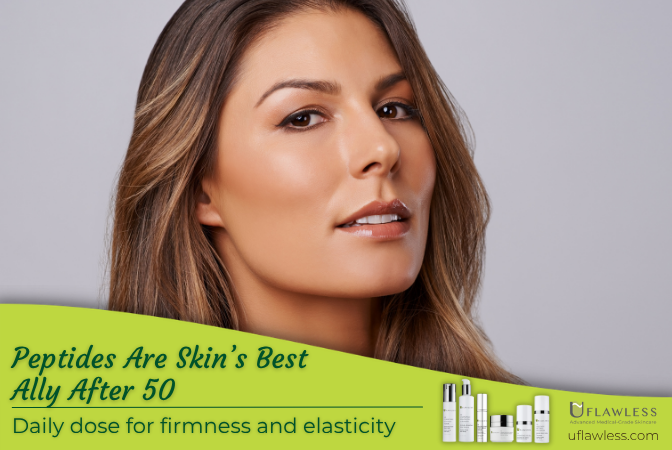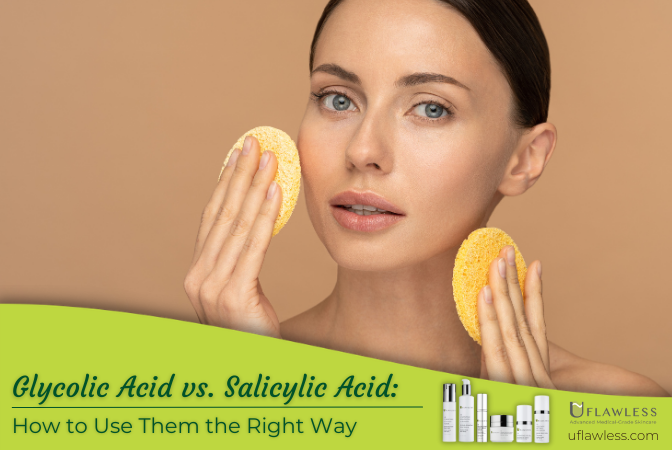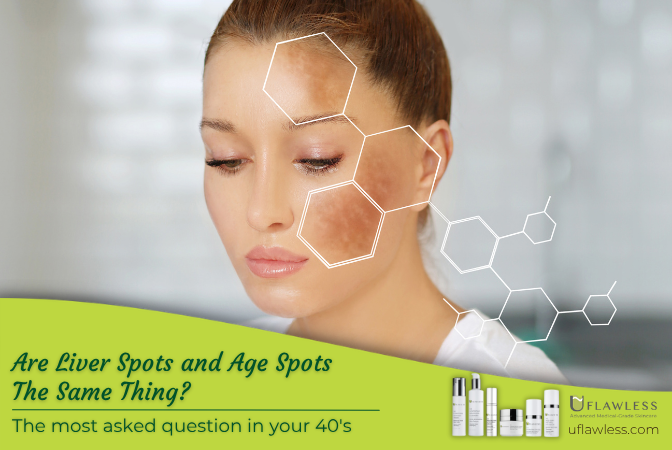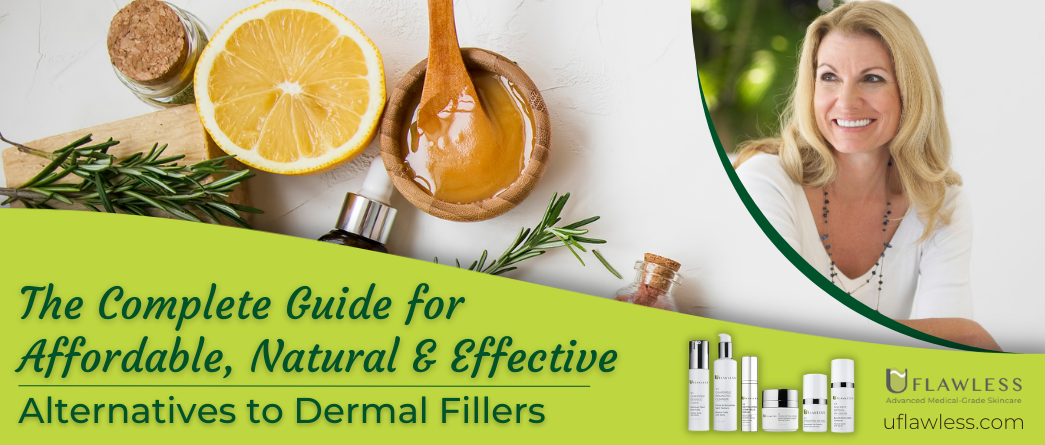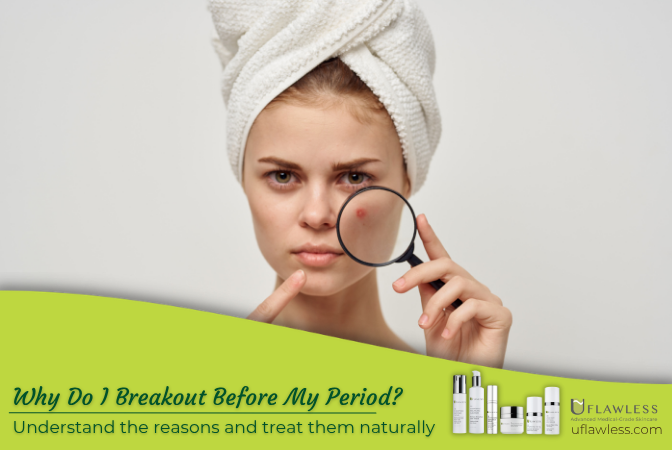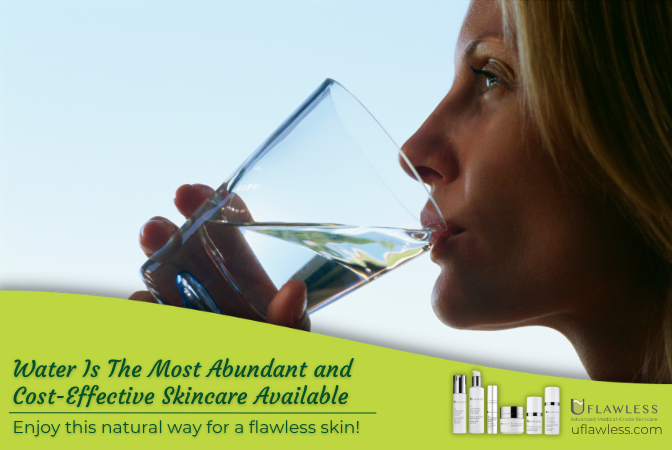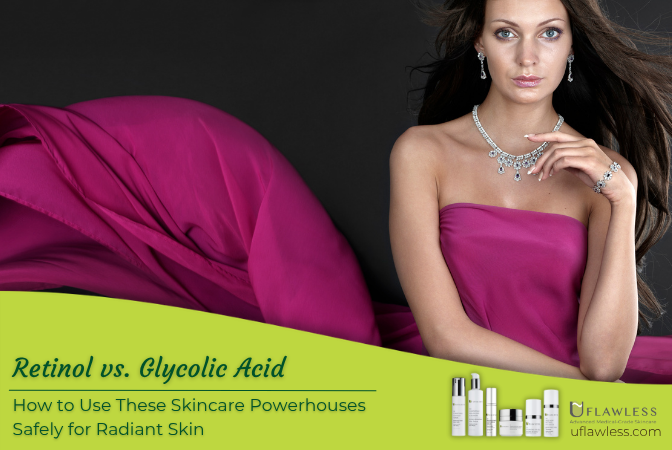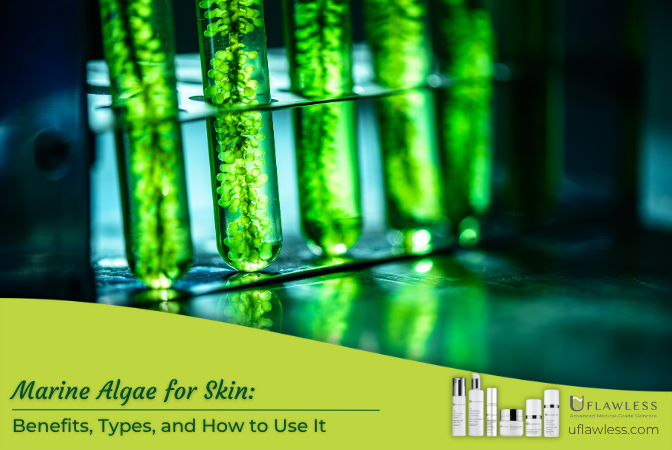
Marine Algae for Skin: Benefits, Types, and How to Use It
Why Everyone Is Talking About Algae in Skincare
Marine algae has quickly become one of the most talked-about ingredients in skincare, and for good reason.
A study from the University of Ohio revealed that marine algae is packed with everything the skin needs to thrive:
-
Vitamin A (for cell turnover)
-
Vitamin C (for collagen synthesis)
-
Vitamin E (for antioxidant protection)
It’s not just a trend. Algae has been used for centuries to treat skin wounds and infections.
Today, modern science has confirmed what ancient cultures already knew, algae is a powerhouse ingredient for healthy, radiant skin.

What Are Marine Extracts? Are They the Same as Algae?
Yes, marine extracts are derived from algae and seaweed. While seaweed is a more general term, algae refers to both microalgae (tiny, invisible to the eye) and macroalgae (visible, like seaweed).
After recent scientific breakthroughs, algae is now cultivated on a larger scale in places like Antarctica, Hawaii, and coastal Japan to extract its skin-nourishing benefits more effectively.
What Does Algae Do for the Skin?
Marine algae is one of the few ingredients that hydrates, protects, and detoxifies the skin, all at once.
Key skincare benefits of algae:
-
Shields skin from free radicals caused by sun, pollution, and stress
-
Stimulates collagen production at the deeper layers of the skin
-
Provides a natural anti-inflammatory effect
-
Boosts hydration, elasticity, and softness
-
Helps detox pores and improves skin absorption of other actives
-
Protects against UV damage and premature aging
Let’s explore how different types of algae work on your skin.
Red Marine Algae: UV Protection + Anti-Viral Defense
Red algae gets its color from unique pigments like phycocyanin and phycoerythrin, which also function as natural UV filters.
Key benefits:
-
Helps shield skin from sun-induced cell damage
-
Contains carrageenans, compounds with anti-viral and anti-bacterial properties
-
Enhances resilience in the skin against harsh environmental conditions
This type of algae is particularly helpful for those with sensitive or sun-prone skin.
Brown Marine Algae: Rich in Vitamins C & E
Brown algae is one of the best sources of two essential skin vitamins:
-
Vitamin C to stimulate collagen
-
Vitamin E to fight oxidative stress
What it does:
-
Boosts skin elasticity
-
Strengthens the skin barrier
-
Improves firmness and tone
-
Often found in serums and moisturizers for anti-aging and firming benefits
Blue-Green Algae (Spirulina): Detox + Plant-Based Protein
Spirulina is the most well-known type of blue-green algae and is often consumed as a superfood supplement.
Key nutrients:
-
Vitamin B complex
-
Calcium and amino acids
-
Chlorophyll, a potent detoxifier
Skin benefits:
-
Detoxifies skin cells, improving clarity and glow
-
Helps calm breakouts and inflammation
-
Supports cell repair and anti-aging
-
Boosts the absorption of other active ingredients in your routine
You can apply it topically or consume it as part of a skin-nourishing diet.
Try This DIY Green Detoxifying Marine Algae Mask
Want to try algae at home? This two-step mask is packed with plant-based detoxifiers and exfoliants.
Ingredients:
-
1½ teaspoons of spirulina powder
-
½ ripe avocado
-
1 tablespoon brown sugar
-
2 tablespoons fresh lemon juice
How to use:
-
Mix all ingredients in a bowl
-
Exfoliate: Apply a small amount to damp skin and gently massage in circular motions
-
Rinse
-
Mask: Apply the remaining mixture as a face mask
-
Let sit for 15–20 minutes
-
Rinse again and follow with a marine extract moisturizer
Important: Never apply this mask in direct sunlight. Lemon can cause photosensitivity and lead to irritation or spots.
Should You Eat Marine Algae Too?
Absolutely. Algae isn’t just a topical ingredient—it’s a nutritional powerhouse when consumed.
It contains:
-
Plant-based protein (ideal for vegans)
-
Essential minerals and trace elements
-
Natural antioxidants
Cultures like the Japanese, who have included algae in their diets for centuries, are among the longest-living populations on Earth. Regular intake can support:
-
Detoxification
-
Skin clarity
-
Immune health
But Be Cautious: Watch Out for Algal Blooms
Not all algae is safe. In some areas, polluted or slow-moving water can cause harmful algal blooms, which release toxins that can be dangerous to humans and animals.
If you're near water that looks green and smells bad, stay away, it could be toxic.
But when sourced from clean, controlled environments, algae is safe and highly beneficial in both skincare and nutrition.
Why Marine Algae Deserves a Place in Your Skincare
Algae is more than a trend, it’s a clinically-backed natural powerhouse that hydrates, detoxifies, strengthens, and protects your skin.
At UFlawless, we embrace marine extracts because they work deeply and gently, helping to:
-
Fight signs of aging
-
Improve skin texture and glow
-
Strengthen your skin barrier
-
Promote long-term skin health
Whether in your serum, cream, mask—or even your smoothie—marine algae is a smart way to nourish your skin from every angle.

